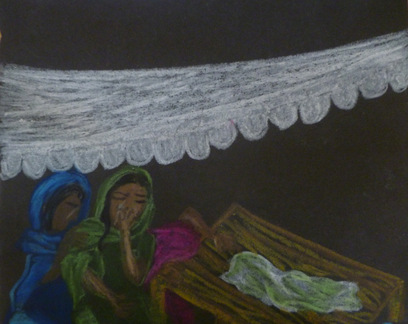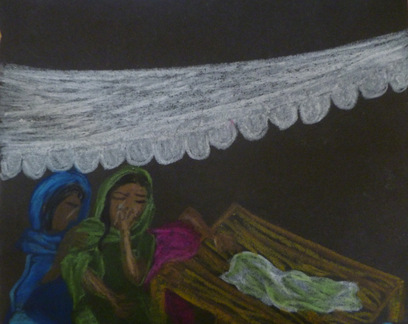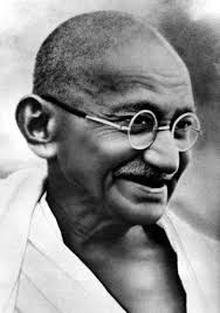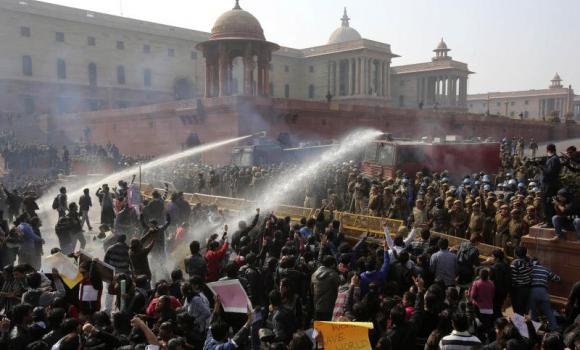Now as they went on their way, Jesus entered a village. And a woman named Martha welcomed him into her house. And she had a sister named Mary, who sat at the Lord’s feet and listened to his teaching. But Martha was distracted with much serving. And she went up to him and said, “Lord, do you not care that my sister has left me to serve alone? Tell her then to help me.” But the Lord answered her, “Martha, Martha you are anxious and troubled about many things, but one thing is necessary. Mary has chosen the good portion, which will not be taken away from her.
Luke 10:38-42
But in response to these questions has come the gentle whisper that perhaps this story is not the simple dichotomy of practical action vs. pious devotion that is often taught, on Sunday school felt boards as well as in sermons intended for adults. I’m beginning to recognize the Mary in myself, too—the part of me that does want to just sit with Jesus and be still and be loved. And it occurs to me that the Mary in the story might have felt the same ambivalence and tinge of guilt while she sat there as I do. Maybe when Martha appealed to Jesus for some help with her “lazy” sister, her accusation tapped into that inner guilt and caused Mary to expect a rebuke from Jesus rather than the reassurance he gave her that she was justified in her stillness. Perhaps Jesus’ response was a surprise to both sisters, rather than being a rebuke to either of them.
The more I reflect on it, the more I become convinced that the condition of distraction or of presence with Jesus is much more a matter of the heart’s posture than it does with external activity. It’s clear from Jesus’ life and teachings that there is a lot of important action that needs to be engaged in—he spent himself on behalf of the poor, healing the sick and shepherding the harassed crowds of the oppressed. But the equanimity with which he was able to meet both acceptance and rejection; the infinite patience and compassion he demonstrated for the mobs of needy people that followed him wherever he went—all of this leads me to believe that even between his times of obvious solitude, Jesus never really left his Father’s caring embrace. He was somehow fully immersed in the suffering of the world while managing to sit at the feet of God the whole time. He offered love, acceptance, and peace to the people around him out of the vast supply of what God was breathing into him on continual basis.
I feel attracted to this possibility growing in my own life. I hear Jesus’ invitation to sit contentedly with him in the hours of waiting in crowded hospitals and the scenes of violence in my neighborhood as well as in the quiet moments of prayer in the morning with my door closed. Paradoxical as it sounds, I believe Jesus when he says that he has called me to live in this crazy place and to do nothing but sit at his feet. It may take more time of focused sitting before we’re able to multitask with all the buzz of the realm of action and external events, but that inner stillness is the only thing that will sustain our action over time and give it significance. No point in running ourselves into the ground if we’re forgetting the one thing that is necessary.



